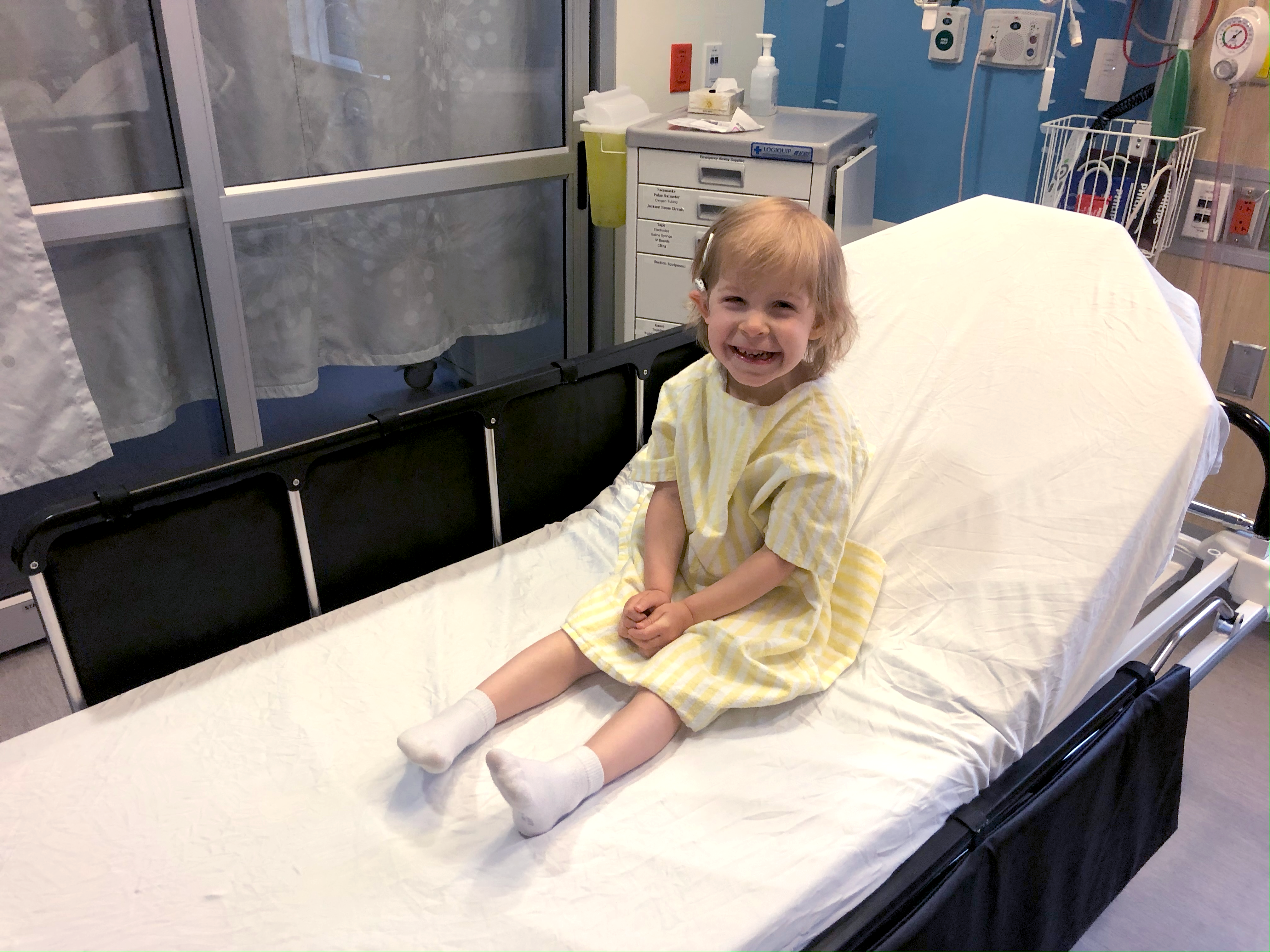Photo: Rebecca
Rebecca’s story
“It was horrible, to have your child being put through every single test imaginable in order to find a diagnosis. When you look back, you understand why they’re being done, but in that moment it’s awful. I would never wish that upon any parent.” —Sarah, Rebecca’s mom
Rebecca was born with an autoimmune disease, cleft palate and a hearing impairment. When Rebecca was only 2 months old, a pediatrician noticed she was unusually pale, so they ordered blood work. Sarah received a call not long after to bring her daughter to the hospital immediately because Rebecca’s red blood cell levels were dangerously low.
Soon after, she was transferred to BC Children’s Hospital, where the medical staff worked tirelessly to try and identify what was happening. Young Rebecca went through a seemingly endless array of tests, including additional blood panels, blood transfusions, ultrasounds, heart tests, bone X-rays, a bone marrow biopsy and more.
The doctors provided Sarah with regular updates, exploring different possibilities of what was causing Rebecca’s health issues, but none of them completely fit. “We kept receiving different possible diagnoses,” Sarah said. “There was a lot of ‘We’ve never seen this before, don’t know why this happening’—it was dreadful, not knowing.”
This diagnostic odyssey went on for four years. Rebecca lived with constant fatigue, a perpetually runny nose and was frequently sick. She went through a repeated cycle of slow deterioration, immunoglobulin transfusions to help boost her body’s antibodies and fight infection, improved energy due to the transfusions, to slow deterioration again.
Hope started to appear on the horizon when Sarah and Rebecca were enrolled in a cutting-edge genetic research program: the Precision Health Initiative. In partnership with a team of genetic experts, Dr. Stuart Turvey, pediatric immunologist and lead of the Precision Health Initiative, monitored Rebecca over the next few months and did whole genome sequencing for Rebecca and her parents. Eventually Dr. Turvey and his team came back to Sarah with an amazing announcement: they were confident that they’d discovered the cause of Rebecca’s condition, a rare genetic mutation that had only been found in one other child across the world.
“It was the first time that things started making sense,” Sarah said. “We finally had an answer, and it felt right.”

This discovery didn’t immediately change Rebecca’s condition, but it was such an immense relief for her family to finally know why it was all happening. With the identification of this gene mutation, there’s hope that researchers will be able to identify treatments that could help Rebecca and other children like her.
“Rebecca is the perfect example of the type of child and family that the Precision Health Initiative can support,” Dr. Turvey said. “Through this program, we will continue to make diagnoses and change the lives of families across the province.”
Rebecca is currently in kindergarten in her hometown of Hope, BC. Her mom describes her as a joker with a vibrant, sarcastic sense of humour. She’s very social and tries to keep up with her peers, even though her low energy levels can make it difficult. Despite the challenges of her condition, Rebecca has learned to focus on having fun and truly enjoying life.
“Rebecca is strong,” Sarah said. “She’s always happy, no matter how sick she is or how many times she has to be poked or prodded. She wakes up happy, every day.”
The Precision Health Initiative is generously supported by Mining For Miracles, the BC mining community’s longstanding fundraising campaign for BC Children’s Hospital Foundation. To learn more about how Mining for Miracles is making a difference in the lives of kids like Rebecca, visit: miningformiracles.ca.
